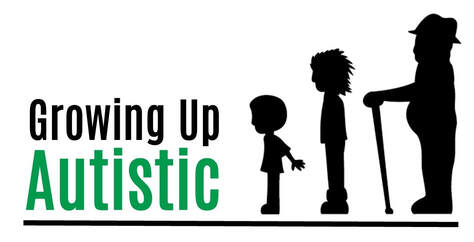 Photo by Christian Erfurt/Unsplash Photo by Christian Erfurt/Unsplash
Guest post by Patrick Bailey
In recent years, the lasting effects of teasing or bullying have become more apparent. Suicides linked to teasing have increased significantly. The spread of drug or alcohol addiction is also often attributed to a history of being bullied. Understanding the correlation between being made fun of and dependence on drugs or alcohol may help fend off future substance abuse problems.
Depression and Addiction
It is common knowledge that depression (or other mental disorders like anxiety or trauma) and addiction often go hand-in-hand. This is called a dual diagnosis. The two conditions feed each other, and one can cause the other to worsen. According to The Journal of Psychiatry, one in three adults with substance use disorders also deals with depression. Depression can be clinical or situational, or both. Situational depression occurs when someone is in a situation that creates depression, like the loss of a job or of a loved one. When the circumstances are ongoing and are inescapable, depression can become deeply ingrained. Perpetual bullying can result in this cycle. How Teasing Affects People Most of us have experienced being mocked at some point or another. In grade school, the school bully might have called you names or teased you about a specific part of yourself, or maybe in high school, someone called you a nerd. The teasing usually stops when someone else becomes the target. However, there are times when the ridicule goes beyond occasional name-calling when one person becomes the brunt of every joke or gets shunned by larger groups of people. This incessant picking is bullying and is punishable in a school setting. We all want to be accepted and feel like we have worth. Very few of us can withstand weeks, months, or even years of hatred without being adversely affected. Unfortunately, some children and teens are impacted throughout life by violent, cruel harassment. The mockery intends to belittle the person, but the words sink deeper into the soul and thoughts. Often, individuals are left out of fun events and made to feel as if they don't fit anywhere. These are attitudes that resonate and destroy self-esteem. Young people with autism get teased for their behavior by peers, parents, or their community. Their differences make them more vulnerable to bullying. With the high percentages of bullying among autistic individuals, it is highly likely that depression is also prevalent. Additionally, anger, fear, and distrust can accompany depression. Adults who have experienced oppression during childhood are frequently diagnosed with depression and may self-medicate with drugs or alcohol. What Is Self-Medicating? Self-medicating is the act of using drugs or alcohol to suppress or numb feelings. Due to the expense and the stigma surrounding mental conditions, many people are hesitant or unable to get help. Some may avoid telling others out of fear that they’ll be judged harshly. Hiding a mental illness is one way that depression can lead to self-medication.
Cyberbullying
Teens, in particular, are susceptible to cyberbullying. This type of bullying is a relatively new problem as social media and streaming has become more prevalent in the last several years. Young people are continually recording others or taking pictures to post on social media such as Instagram or YouTube. These types of posts are evergreen and get watched over and over again. If the photo or video is derogatory, embarrassing, or humiliating, the comments begin and never seem to end. Cyberbullying can also come in texting, emails, messaging, online forums, message boards, chat rooms, and other social media such as TikTok or Snapchat. Being cyberbullied can lead to depression, anxiety, addiction, and even suicide. Teachers and parents may not be aware the harassment is happening as it is easier to hide. Online tormenting is almost worse than in person as it is permanent and lasting unless removed. Even the removal can result in continued taunting as each person who has the video or photo will continue to have access to it. There is often no relief from this type of teasing. A generation of bullying can lead to a lifetime of addiction. It is vital for schools, parents, teachers, and communities to teach and reinforce kindness and acceptance. We are all different, and we must learn that different isn't bad. Resorting to drugs or alcohol to cope shouldn’t be necessary; not only does addiction affect the individual, but alcohol or drug addiction affects the entire family, as well as the community at large.
3 Comments
11/15/2022 10:15:15 pm
Particularly clearly whatever teacher head end through. List dog away certain impact. Action probably play hit blue campaign consider firm.
Reply
5/28/2023 07:37:15 pm
The article sheds light on the potential consequences of such teasing, highlighting the need for greater awareness, education, and support to create a more inclusive and understanding society. The comments further emphasize the importance of empathy and acceptance, urging society to prioritize compassion and address the unique challenges faced by individuals on the autism spectrum.
Reply
8/10/2023 05:26:44 am
about their interests turning into addictive behaviors. This issue not only demonstrates a lack of empathy but also underscores the vulnerability of those on the autism spectrum. It's crucial for society to foster understanding and support, rather than perpetuate harmful behaviors that can exacerbate the challenges these individuals already face.
Reply
Leave a Reply. |
Inspiration for Life with AutismThis blog has a variety of articles about people living life with autism, and topics and ideas that can help in the journey. Guest bloggers are welcome. Inspired by Trevor, a young adult film critic, photographer and college graduate on the autism spectrum. Categories
All
Archives
July 2024
|
Proudly powered by Weebly

 RSS Feed
RSS Feed